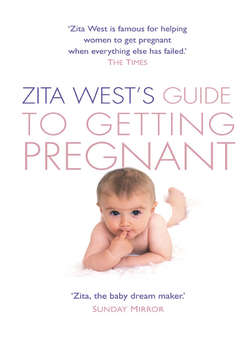Читать книгу Zita West’s Guide to Getting Pregnant - Zita WEST, Zita West - Страница 35
Lifespan of the Egg
ОглавлениеHaving managed to ovulate a mature, functioning egg and, with all other things working to advantage, the lifespan of the egg is only estimated to be around 8 to 12 hours. This is further complicated by the difficulty in knowing exactly when ovulation occurs. For example, if you ovulate at 3 a.m. but don’t have intercourse until the following evening, chances are that the egg is no longer capable of being fertilized. Now, I wouldn’t want any woman reading this to start lying awake at night worrying that she might be ovulating then and there – this won’t help you or your partner in the long run! – but this is why regular and frequent sex is an essential feature of successful conception. Keep in mind that sperm deposited in a woman’s vagina stay alive, on average, for between two and three days (and in some cases for up to a week), so if you are having sex every day or every couple of days around the most fertile time of your cycle, the chances of conception are increased dramatically. Research shows that most pregnancies occur within a ‘fertile window’ of six days before ovulation and one day after. If there are live, potent sperm in the Fallopian tubes when ovulation occurs, then conception is much more likely than if sex occurs sometime after ovulation.
